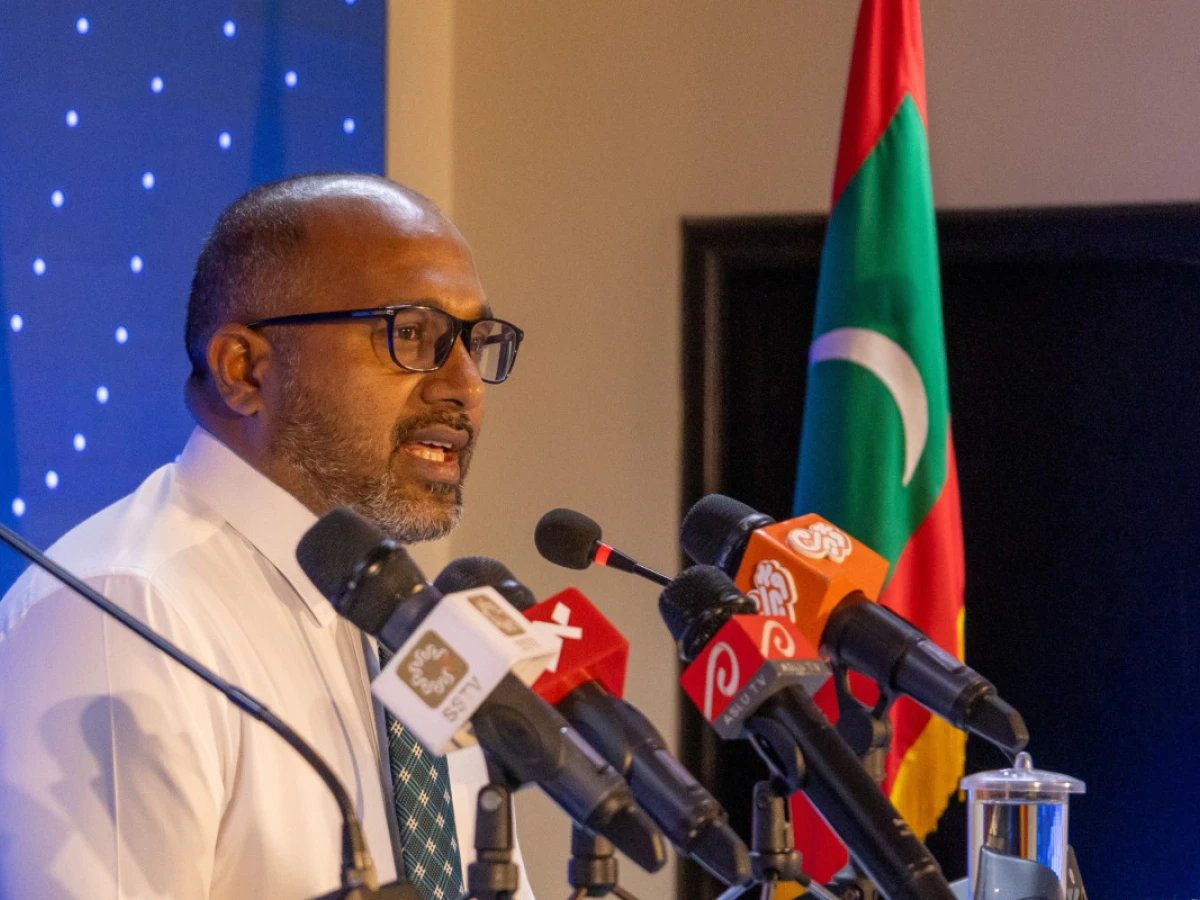
Maldives to make autopsy mandatory for inmate deaths
The discolouration on the inmate was caused by postmortem lividity, according to Homeland Minister.
Top Stories
By
Mohamed Muzayyin Nazim
The government on Saturday decided to make post-mortems mandatory for inmates who die in prison.
The decision was made at a press conference held by Homeland Security Minister Ali Ihsan, including police and correctional services, at Iskandar Barracks following allegations that Mohammed Jameel, Zamanee Villa/Sh. Fonadhoo, died in Maafushi prison on Friday due to torture by prison officers.
“From now on, under any circumstances in the prison, any prisoner who dies will be released from our custody after a full post-mortem,” Ihsan said.
"The body will be handed over to the family after a post-mortem is conducted and we receive the reports”.
Ihsan said the body of Jameel was handed over to the family for burial after police investigations into his death.
“Since even the doctors did not believe that the bruises and discoloration apparent on him to have been from torture and the investigation concurred, we decided to proceed [handing over the body to the family],” Ihsan said.
Photos of Jameel's body have since been circulated on social media, leading to allegations on the Correctional Service that he was killed due to torture in prison. Ihsan said the decision to conduct a post-mortem was made then. He said:
-
The pictures were taken inside the funeral home after the body was taken to the cemetery
-
The discolouration was caused by postmortem lividity
Livor mortis, also known as postmortem hypostasis or postmortem lividity, is a passive process of blood accumulating within the blood vessels in the dependent parts of a dead body as a result of gravity, causing a discoloration of the skin that varies from pink to dark purplish.
“When there were rumours that he was tortured, I decided to conduct an autopsy,” Ihsan said.
The minister said that even then, the family was opposed to conducting a post-mortem. He said he went to the cemetery and explained to the deceased’s family the reasons behind the decision to conduct the post-mortem.
"As a minister responsible for these state institutions, I have repeatedly asked and pleaded with them to give us the opportunity to do this. However, the family did not want to do it at all," Ihsan said.
Ihsan said the family believed Jameel's death was a 'natural death'.
"The family made it very clear to me that they had no complaints. They did not believe that this was a deliberate physical assault," Ihsan said.
At that point, he informed President Dr. Mohamed Muizzu of the situation, the minister said.
“The President also did not wish for there to be a clash between police and the people and as a result cause injury to the people in the process of handing over a dead inmate's body to his family,” Ihsan said.
Jameel's body was then handed over to his family without a post-mortem.
Jameel's death was confirmed when he was taken to Maafushi health centre after he was noticed to be motionless in his cell for several hours.He'd been like that for over four hours at the time.
Ihsan said he believed that the correctional service officers should not have been unaware of a prisoner remaining motionless for so long. He added:
-
I believe that’s something we need to pick up on
-
It was the time when the cell was open; corrections officers will monitor the movements of the prisoners once an hour while the cell is closed
-
From now on, inmates will be checked-on once an hour even when the cells are open
At the press conference, Ihsan urged the public to not mix politics with someone’s death, to gain any political leverage.




